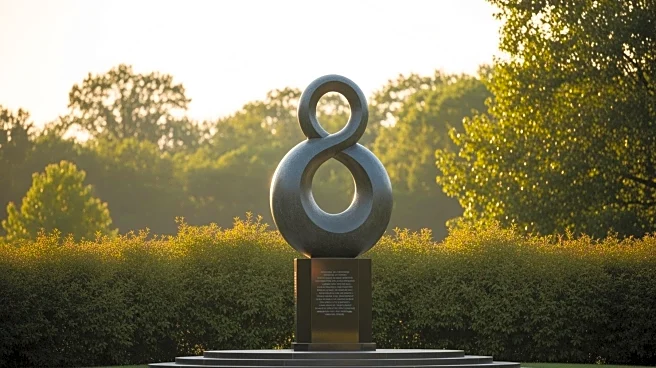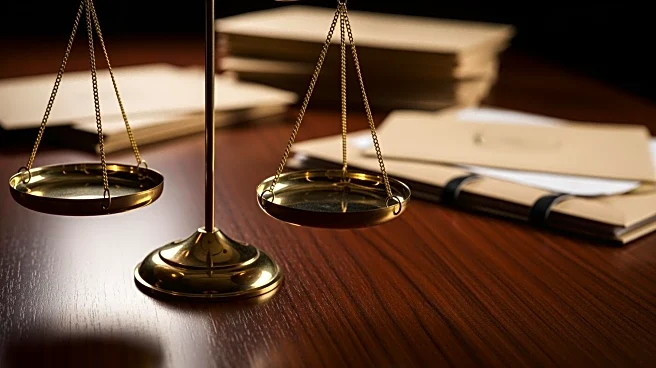What's Happening?
King Charles III has unveiled a memorial dedicated to LGBT military personnel at the National Memorial Arboretum in Staffordshire. This marks his first official engagement in support of the LGBT+ community.
The memorial, named 'an opened letter,' is a tribute to those who served during a time when being gay in the military was illegal, a ban that lasted until 2000. The unveiling ceremony was attended by affected veterans, who view the monument as a symbol of closure after years of campaigning for legal change and government reparations. The bronze sculpture, designed by Norfolk-based artist collective Abraxas Academy, resembles a crumpled piece of paper with words from personal letters used as evidence against individuals. Prime Minister Keir Starmer praised the memorial as a lasting tribute to the bravery of these veterans.
Why It's Important?
The unveiling of the LGBT Veterans Memorial is significant as it acknowledges the historical injustices faced by LGBT military personnel and serves as a step towards healing and recognition. The memorial is part of the recommendations from The Etherton Review, which documented the homophobic culture and abuses suffered by LGBT veterans. This development highlights the ongoing efforts to address past discrimination and ensure inclusivity within the armed forces. It also reflects broader societal changes towards acceptance and equality for the LGBT community, potentially influencing public policy and military practices.
What's Next?
The memorial is expected to serve as a reminder of the past injustices and as a catalyst for continued advocacy for LGBT rights within the military. Organizations like Fighting With Pride, which led the memorial project, will likely continue their efforts to support affected veterans and push for further reparations. The government may face pressure to implement additional recommendations from The Etherton Review to ensure all military personnel feel valued and respected.
Beyond the Headlines
The memorial not only serves as a tribute but also as a tool for education and awareness, ensuring that future generations understand the impact of the ban and the importance of inclusivity. It raises ethical questions about how societies reconcile with past injustices and the role of memorials in healing and remembrance.









